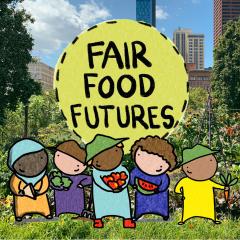Between October 2018, and March 2019 researchers from the University of Queensland interviewed Uber “driver-partners”, ex-drivers, and met with Uber management, and several key stakeholders involved with ridesourcing1 in Brisbane, Australia. While there is a growing amount of information surrounding Uber and ridesourcing as a form of gig-work2 we are concerned about the lack of Australian specific information that is rigorous and independent. More specifically, while much information focuses on specifics of income disparity, driver inequality, and safety concerns our research seeks to explore the effects of ridesourcing on drivers’ social, work, and family life. To this extent the following report outlines the key findings of twenty-four interviews with current Uber driver-partners about their work history prior to driving for Uber, as well as their work identity, routines, and their philosophy on work more broadly.
Key findings in our report suggest that drivers have less control over when, where, and how they operate than is promoted by Uber3. While flexibility was reportedly the most frequent reason that drivers signed on to Uber, our report demonstrates that work experience and driver’s family responsibilities are likely to contribute to the experience of flexibility. For instance, many drivers reported signing up with Uber because they were underemployed, or underappreciated in their previous occupation. Similarly, while almost all drivers detested driving in the Brisbane CBD and driving on weekend nights, drivers from single income households were considerably more likely to work these hours than drivers from households with a combined income. Drivers from countries other than Australia or New Zealand were also more likely to drive these undesirable hours. These findings suggest that the patterns that organise Uber driver-partners are more likely to reflect a driver’s economic capital (the availability of economic assets), or their social and cultural capital (their ability to draw on friends, or knowledge to prosper in society). Consequently, our findings suggest that flexibility amongst Uber driver-partners is more likely to be an outcome of the driver’s position in society, than it is of Uber’s business model.
These findings complement recent research from Rosenblat (2018) about the financial and social struggles of Uber drivers in the United States. It also complements research from Campbell and Price (2016) who question the causal link between precarious work and precarious workers. Our research addresses these tensions by demonstrating that while Uber’s ‘flexible’ model benefits some drivers, it does not benefit all — or even most — drivers.
If you are interested in the report you can read it in full here (PDF, 385.7 KB).
By Dr. Peter “PJ” Holtum, & Professor Greg Marston


